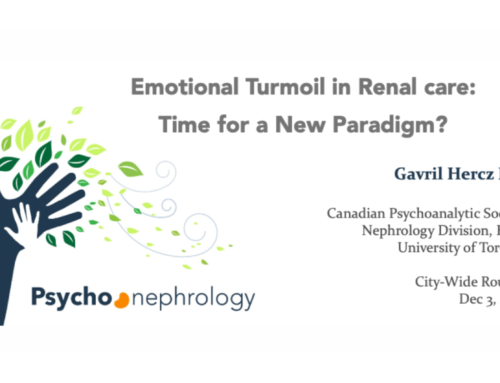
The Role of Clinicians in an AI-Driven World
At first glance, one might assume the more appropriate question to explore would be the role of Artificial Intelligence in healthcare. But that perspective is rapidly shifting. As AI continues to advance, the question now being asked—quietly in corridors and loudly in conferences—is: What is the role of the clinician in a world increasingly run by AI?
This evolution marks a profound change. What was once a tool to assist clinicians has now become a partner—sometimes even a driver—in decision-making, diagnostics, and system-level management. Rather than AI finding its place in healthcare, clinicians today are navigating how best to define and refine their roles within an AI-augmented environment.
The Changing Landscape of Clinical Practice
The healthcare ecosystem has always demanded precision, empathy, and adaptability. With the rise of machine learning, predictive algorithms, and data analytics, clinicians now have access to tools that promise unmatched speed and accuracy. AI can analyze thousands of data points in seconds, flag potential complications long before symptoms arise, and even suggest evidence-based treatments tailored to individual patients.
Far from replacing the human element, AI presents a unique opportunity to relieve clinicians of many administrative and repetitive burdens. Electronic Health Records (EHR), once a major source of burnout and distraction, are now becoming more intuitive, thanks to AI integration. Automated data entry, risk prediction tools, and streamlined communication systems are allowing clinicians to reclaim time—for their patients and for thoughtful decision-making.
(Source: AMA – Physician Burnout and EHR Burden)
Working With AI, Not Against It
The key lies in partnership. When AI and clinicians work together, the result is a healthcare model that is both cutting-edge and compassionate. While machines can detect minute patterns in lab results or imaging, it is the clinician who brings context—understanding the patient’s story, social circumstances, and emotional state.
This synergy allows for a more holistic approach to care. For instance, AI algorithms can flag a patient as high-risk for readmission based on a complex interplay of clinical markers. But it takes a clinician to explore why—a lack of social support, difficulty accessing medications, or unresolved anxiety—and address the human factors behind the data.
(Source: National Library of Medicine- AI in Predicting Readmissions)
Benefits of AI-Augmented Care
The Topol Review (2019), a landmark exploration commissioned by NHS Health Education England, outlines several compelling benefits of integrating AI into clinical practice:
- Reducing the burden of EHR use: Automation and smart documentation free up time for patient interaction.
- Combating antibiotic resistance: Algorithms can support precise antimicrobial prescribing, reducing misuse.
- Empowering devices: AI-enabled machines, from ventilators to dialysis units, adjust settings in real-time based on patient needs.
- Enhancing risk prediction: AI transforms static records into dynamic, predictive tools that guide care proactively.
- Revolutionizing bedside decision-making: Real-time data and clinical decision support tools enhance accuracy and responsiveness.
(Source: Topol Review – NHS)
These applications work best when AI delivers the right information—evidence-based and clinically relevant—to the right people across the care continuum. Whether it’s a physician, nurse, pharmacist, or patient, that information must arrive through the right channels (EHRs, mobile apps, or portals), in the right format (dashboards, alerts, order sets), and at the right moment in the workflow.
The Evolving Role of the Clinician
As artificial intelligence grows in sophistication, the clinician’s role becomes more nuanced, not less relevant. Rather than functioning solely as diagnosticians or proceduralists, clinicians now act as interpreters, navigators, and stewards of AI-guided insights. Their training, judgment, and empathy serve as critical checks and balances in a world where technology might otherwise operate without context or conscience.
There’s also a broader responsibility—ensuring that AI tools are equitable, transparent, and inclusive. Clinicians play a vital role in questioning algorithmic bias, protecting patient privacy, and advocating for systems that enhance, rather than erode, the human connection in care.
(Source: World Health Organization – Ethics & Governance of AI for Health)
The future of healthcare isn’t a choice between clinicians and AI—it’s a collaborative journey. The clinician’s role in an AI-driven world is not diminished, but rather reimagined. It is in this thoughtful integration—of logic and compassion, of data and narrative—that modern medicine finds its strength.
The task now is to ensure that AI serves as a bridge, not a barrier. And that in our pursuit of precision, we do not forget the patient—or the healer—at the heart of care.
About the Author
Dr Gavril Hercz
Dr. Gavril Hercz is a nephrologist at Humber River Health and Associate Professor of Medicine, University of Toronto. He completed his psychoanalytic training at the Toronto Psychoanalytic Institute and is a member of the Canadian Psychoanalytic Society. His major area of interest is the impact of physical illness on patients, families, and caregivers.
What was once a tool to assist clinicians has now become a partner—sometimes even a driver—in decision-making, diagnostics, and system-level management.




